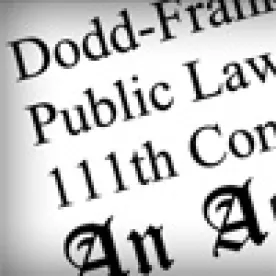On November 16, Senate Banking Committee (“SBC”) Chairman Mike Crapo (R-ID) introduced S. 2155, the “Economic Growth, Regulatory Relief and Consumer Protection Act,” long-awaited Senate legislation designed to foster economic growth and reduce regulatory burdens for small- and medium-sized financial institutions. A SBC section-by-section summary of the bill is available here. Earlier this year, the House passed on a party-line vote H.R. 10, the “Financial CHOICE Act of 2017” (the “FCA”), House Financial Services Committee Chairman Jeb Hensarling’s (R-TX) bill to comprehensively reform the Dodd-Frank Wall Street Reform and Consumer Protection Act (“Dodd-Frank”). S. 2155 is narrower in scope than the House bill and has to date garnered the support of nine Democratic Senators.
The Senate bill was influenced, in part, by the responses that Chairman Crapo and SBC Ranking Member Sherrod Brown (D-OH) received from the public about proposals to spur economic growth. It is also thought to have been partly influenced by the recommendations set forth in the U.S. Department of the Treasury’s (the “Treasury”) reports that President Trump’s Executive Order 13772 on Core Principles for Regulating the U.S. Financial System requires the Treasury to release about possible ways to legislatively and administratively reform the U.S. financial system. Three such reports have been released, and one additional report is expected to be issued soon. For additional information about the reports and ongoing Dodd-Frank reform efforts, please see the K&L Gates Alerts entitled “Treasury Reports Continue to Inform Dodd-Frank Reform Efforts” and “Dodd-Frank Reform; What Comes Next?”
Among the most notable aspects of S. 2155 is a provision (Section 401) that would increase the systemically important financial institution (“SIFI”) threshold and, thus, the application of enhanced prudential standards to bank holding companies (“BHCs”) from $50 billion to $250 billion. Those BHCs that have total consolidated assets between $50 billion and $100 billion would immediately be exempt from these standards. And those that have total consolidated assets between $100 billion and $250 billion would be exempt for 18 months after enactment of S. 2155 (the “effective date”). For BHCs that fall into the latter category, the Federal Reserve Board would (among other things) be required to subject these institutions to periodic stress tests after the effective date. In addition to the SIFI provision, S. 2155 also contains provisions that would enhance consumer access to residential mortgage loans, furnish tailored regulatory relief to community banks, and require certain regulatory agencies to study and report to Congress on cybersecurity threats and algorithmic trading.
In the coming days, the House is expected to continue to advance on a stand-alone basis provisions of the FCA that enjoy bipartisan support, and many of these measures could be considered and passed by the full Senate. It also remains plausible that such stand-alone reform measures could be included as part of unrelated legislative vehicles that must be passed before year’s end. Notably, the SBC has scheduled a markup of S. 2155 for December 5, 2017, setting the stage for possible consideration by the full Senate. As reform efforts proceed on these parallel tracks, interested stakeholders should monitor developments closely and consider opportunities to influence policy outcomes.







 />i
/>i
